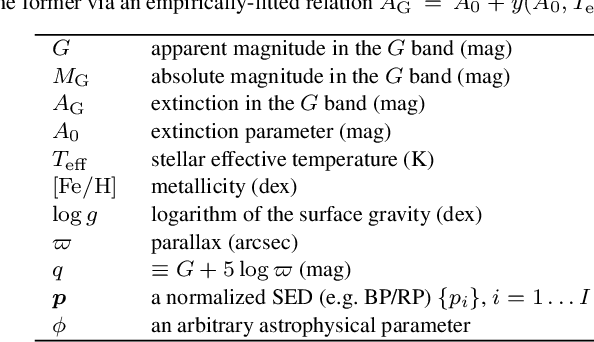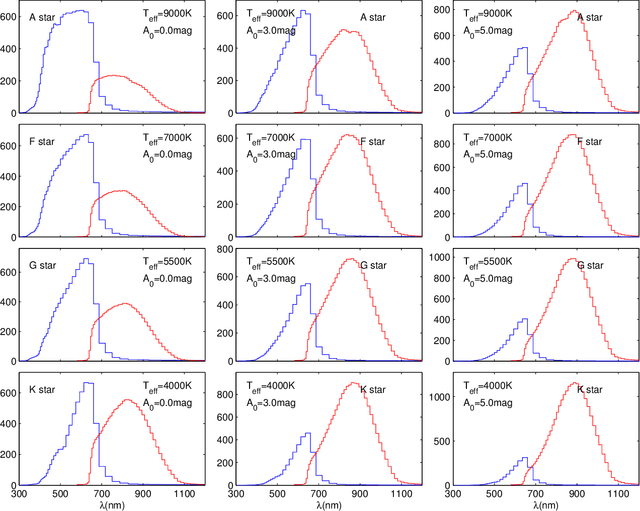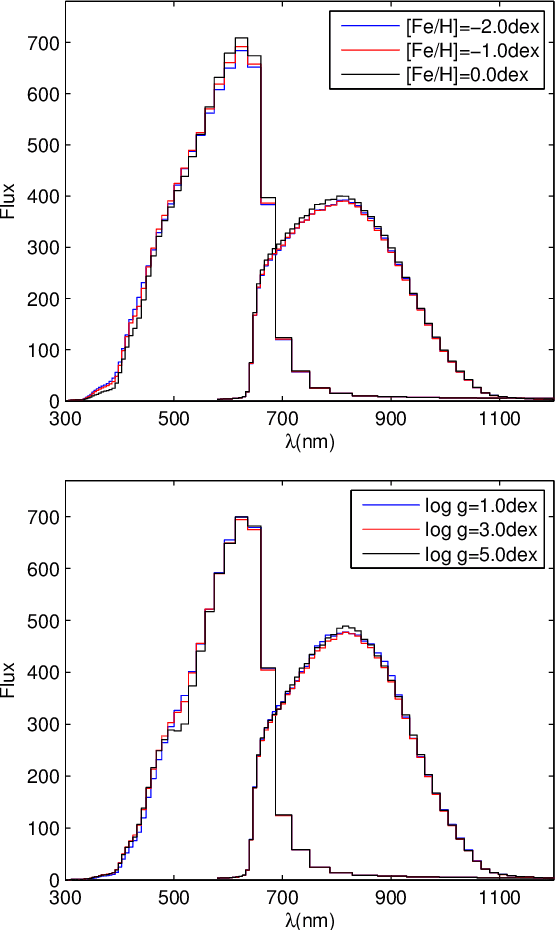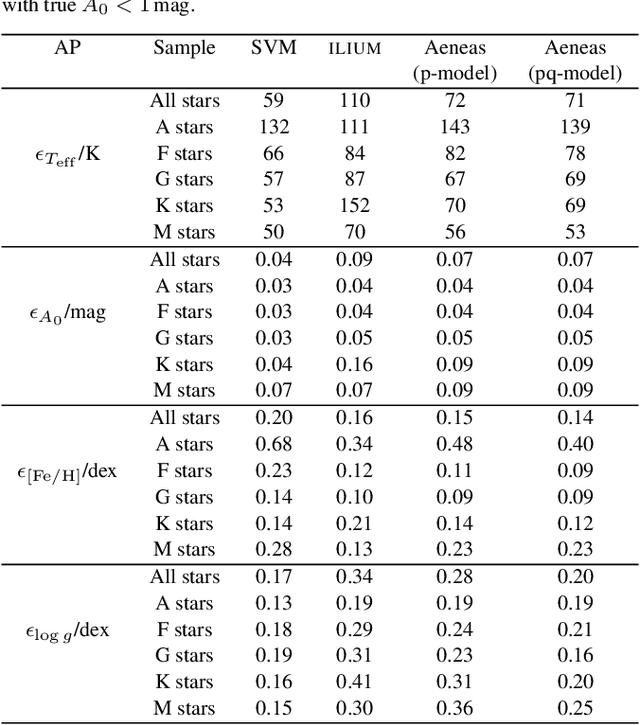The expected performance of stellar parametrization with Gaia spectrophotometry
Paper and Code
Aug 29, 2012



Gaia will obtain astrometry and spectrophotometry for essentially all sources in the sky down to a broad band magnitude limit of G=20, an expected yield of 10^9 stars. Its main scientific objective is to reveal the formation and evolution of our Galaxy through chemo-dynamical analysis. In addition to inferring positions, parallaxes and proper motions from the astrometry, we must also infer the astrophysical parameters of the stars from the spectrophotometry, the BP/RP spectrum. Here we investigate the performance of three different algorithms (SVM, ILIUM, Aeneas) for estimating the effective temperature, line-of-sight interstellar extinction, metallicity and surface gravity of A-M stars over a wide range of these parameters and over the full magnitude range Gaia will observe (G=6-20mag). One of the algorithms, Aeneas, infers the posterior probability density function over all parameters, and can optionally take into account the parallax and the Hertzsprung-Russell diagram to improve the estimates. For all algorithms the accuracy of estimation depends on G and on the value of the parameters themselves, so a broad summary of performance is only approximate. For stars at G=15 with less than two magnitudes extinction, we expect to be able to estimate Teff to within 1%, logg to 0.1-0.2dex, and [Fe/H] (for FGKM stars) to 0.1-0.2dex, just using the BP/RP spectrum (mean absolute error statistics are quoted). Performance degrades at larger extinctions, but not always by a large amount. Extinction can be estimated to an accuracy of 0.05-0.2mag for stars across the full parameter range with a priori unknown extinction between 0 and 10mag. Performance degrades at fainter magnitudes, but even at G=19 we can estimate logg to better than 0.2dex for all spectral types, and [Fe/H] to within 0.35dex for FGKM stars, for extinctions below 1mag.
 Add to Chrome
Add to Chrome Add to Firefox
Add to Firefox Add to Edge
Add to Edge